Vol. 1, No. 1
Thank you for joining us at The Inclusive Community, a newsletter produced by State of Inclusion. You may have signed up for our mailing list a long time ago, or you may be new. In any case, we're glad you're here.
In our work, we are regularly inspired by discussions with generous and committed individuals working to make their community more inclusive and equitable. Through our research and discussions, we uncover additional resources that both stimulate and enlighten us. We offer this newsletter as a way to share a curated selection of those discussions, resources, and insights with you.
We offer this in the hope that you will discover something in each issue that will enable you to deepen your personal practice of equity and inclusion as well as contribute to your community.
Let us know how you like this publication or how we can make it better and more useful for you. Sign in online to leave a comment on this post or email us at info@stateofinclusion.com.
There is no power for change greater than a community learning what it cares about. – Margaret Wheatley
FROM OUR PODCAST
Diversity, Equity, and Inclusion (DEI) at the Intersection of Business and Community
These two podcast episodes are for anyone who is interested in learning how a partnership between their community DEI efforts and their local employers' DEI efforts can help advance inclusion and equity both at work and across the community.
As you listen to these interviews, consider these questions:
- If you’re focused on DEI at work, is your organization also showing up in the community? Are they thinking about how to support DEI outside the four walls of the organization? Are you encouraging them to do that?
- If you’re a community change agent, are you working with the businesses in your community who might already be very far down the road of DEI, and be motivated to work within the community and to partner with you? Are you also partnering with some of the business conveners like the Chamber of Commerce?
- Are you ready to articulate why building a more inclusive and equitable community isn't just the right thing to do, but also makes good business sense?
Tiffane Davis
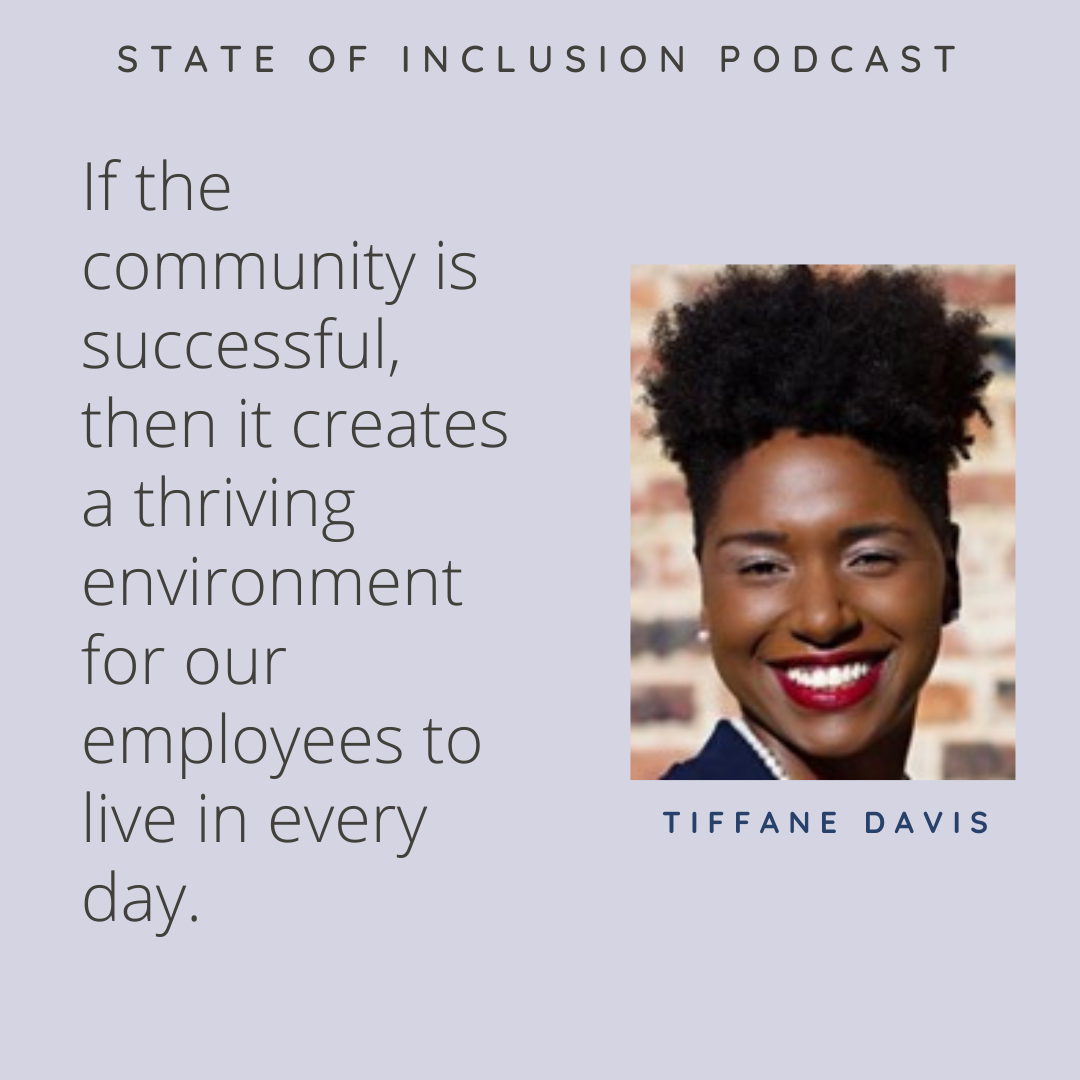
In our latest podcast episode, Tiffane Davis brings a perspective from inside Michelin, N.A. where DEI has been a way of life for decades. Where the approach to DEI is an outgrowth of the company values, and where they are also intentional about reaching out into the community.
Nika White
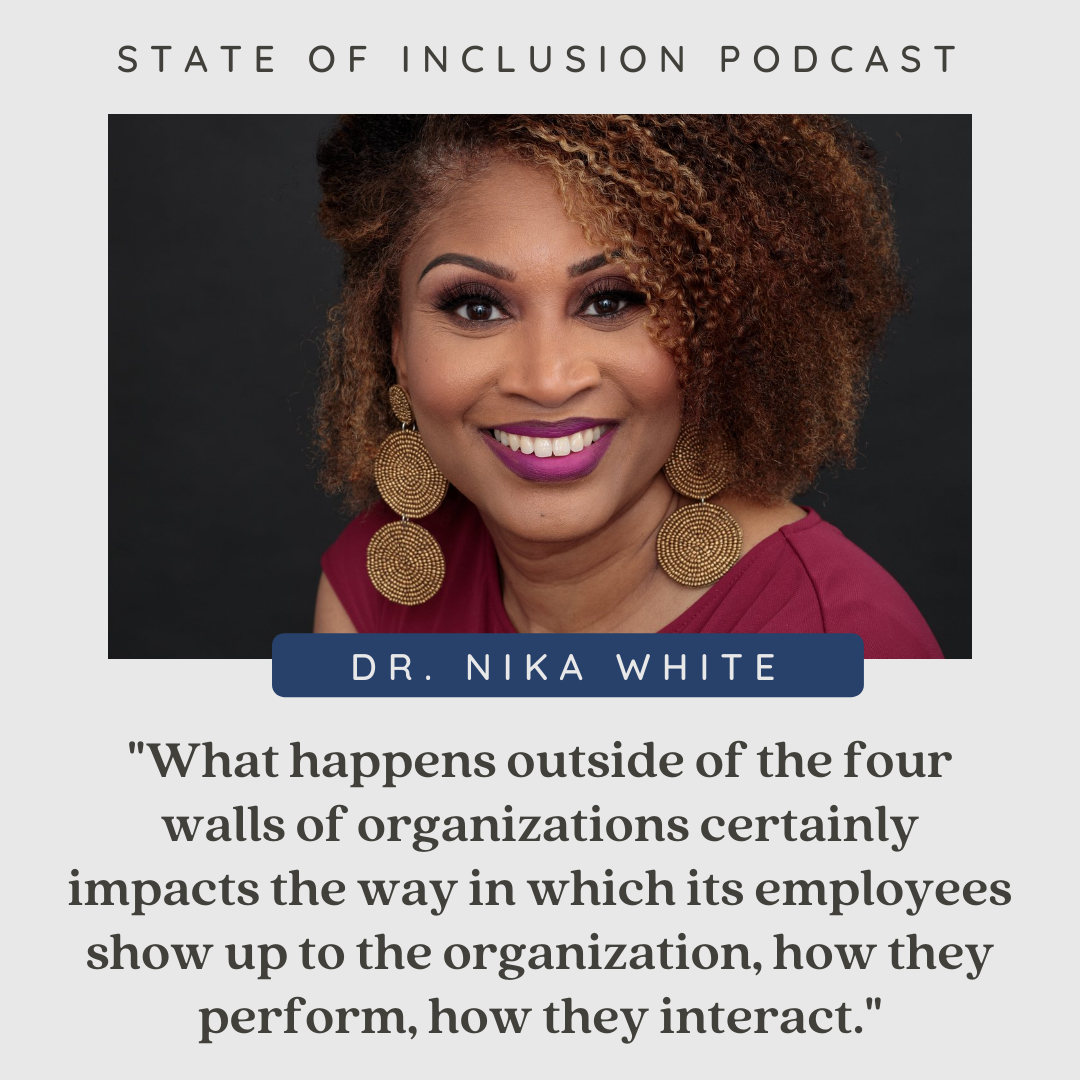
Early in 2022, we had the opportunity to speak with Dr. Nika White about how and why companies across the country are thinking outside the four walls of the corporation when it comes to DEI. She also brings practical experience from leading DEI at a local Chamber of Commerce and the role they can also play in a community.
LEARNING SPOTLIGHT
The Lasting Power of a Simple Ah-Ha Moment
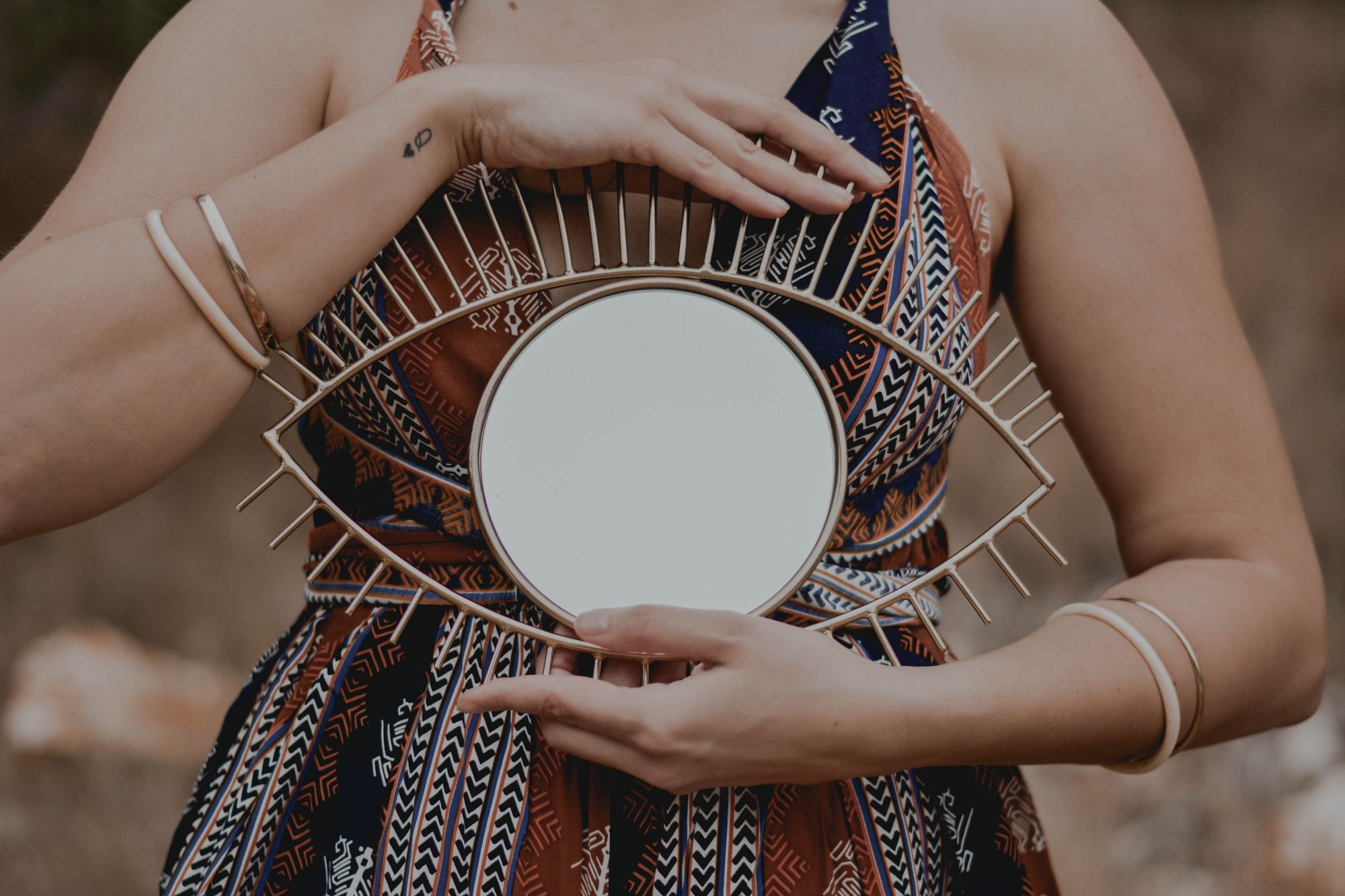
Early in my career at Michelin, I had the opportunity to participate in my first diversity workshop. In that workshop, we covered many of what many might consider DEI basics. It was the place I was first introduced formally to the concepts and language of diversity, equity, and inclusion. It was a short session, about two hours. It included a lecture, some discussion, and a few exercises. Even decades later, I can still remember one of the exercises. Please think about this and try to answer it for yourself before reading on.
A father and son are in a horrible car crash that kills the dad. The son is rushed to the hospital; just as he's about to go under the knife, the surgeon says, "I can't operate--that boy is my son!" How can this be?
Ah-Ha Moments are Sticky
I still remember my struggles and how long our class sat with this exercise before finally stopping the deliberation. Only one person in our group was able to provide an answer. It wasn’t me. As a woman whose early career was in science and technology, how was I unable to open my thinking enough to imagine the doctor was a woman and a mother or perhaps the child’s other gay father? This was a very simple exercise in a basic introductory class. Yet, decades later, the learning has stuck with me. There is nothing like a simple and well-constructed ah-ha moment to make learning sticky.
Learning Does Not Mean Change
Since that class, I’ve learned much more about how our brains work, about blind spots, and bias. Still today, I occasionally catch myself falling into the same old trap. Someone mentions a doctor, and I assume they must be a man. Yet, now I’m more self-aware and able to correct myself. At this moment, more than half of my personal physicians and specialists are women. Classroom learning does not mean change, at least not right away.
Employers as Community Change Agents
Employers have played and continue to play essential roles in helping many in our communities on their individual journeys and with their practice of self work. If we look across our community, our major employers may have already provided DEI learning opportunities and experiences (good and bad) for thousands of employees and managers, perhaps over decades. They have provided space to learn but also to practice and be in community with individuals with whom their employees might otherwise not have the opportunity to engage. In addition, employers can use different accountability structures and levers than communities. As they work to build a more inclusive and equitable company culture, employers also act as community change agents.
Employers as Partners
While communities are not the same as companies, understanding and reflecting on the DEI journey many companies have traveled is helpful. It hints at what is required to sustain this work across time and a large and diverse population. The best part is that it can also serve as a rich source of mutual support. In the end, our local employers are comprised of our neighbors.
Thank the employers who have already been on this journey in your community and enlist them as partners in your work to build a more inclusive community. After all, a more inclusive community will also help them with their goal of creating a more inclusive company.
Source for exercise text above: Hobson, N. (2022). This 50-Year-Old Riddle That Continues to Stump Us Explains Why We Still Have a Strong Gender Bias. Inc. Retrieved from https://www.inc.com/nick-hobson/the-100-year-old-riddle-that-continues-to-stump-us-explains-why-we-still-have-a-strong-gender-bias.html
FROM OUR READINGS
Turning to One Another: Simple Conversations to Restore Hope to the Future, by Margaret J. Wheatley.
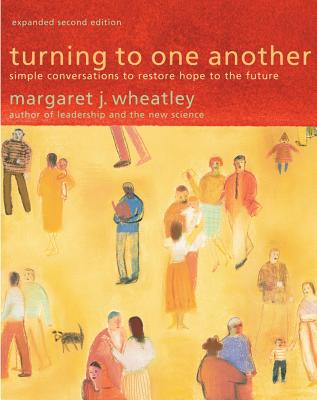
"I believe we can change the world if we start listening to one another again." --Margaret Wheatley.
A guide to building community through conversation.
In this lovely and thoughtful book, Margaret provides a guide to support us as we join others in our community to hold conversations about what is important to us. She reminds us of how fundamental conversation is to human relationships and building community. She shares insights on the importance of conversation and what good conversation looks and feels like.
In the section she calls "Now it's your turn," she reminds us that it isn't enough to read about conversation or engage in superficial conversation. She calls on us to go deep and to open ourselves through conversation. To help and guide us, she provides twelve questions as possible conversation starters. She explores each of these questions in depth and adds her insights and wisdom to help us facilitate these conversations.
In this book, Margaret Wheatley gently nudges us to put our fears aside and join with our neighbors in rich and meaningful conversation, regardless of the questions we choose.
"Now it's time for you to begin the conversation." - Margaret Wheatley
FOR OUR PRACTICE OF SELF WORK
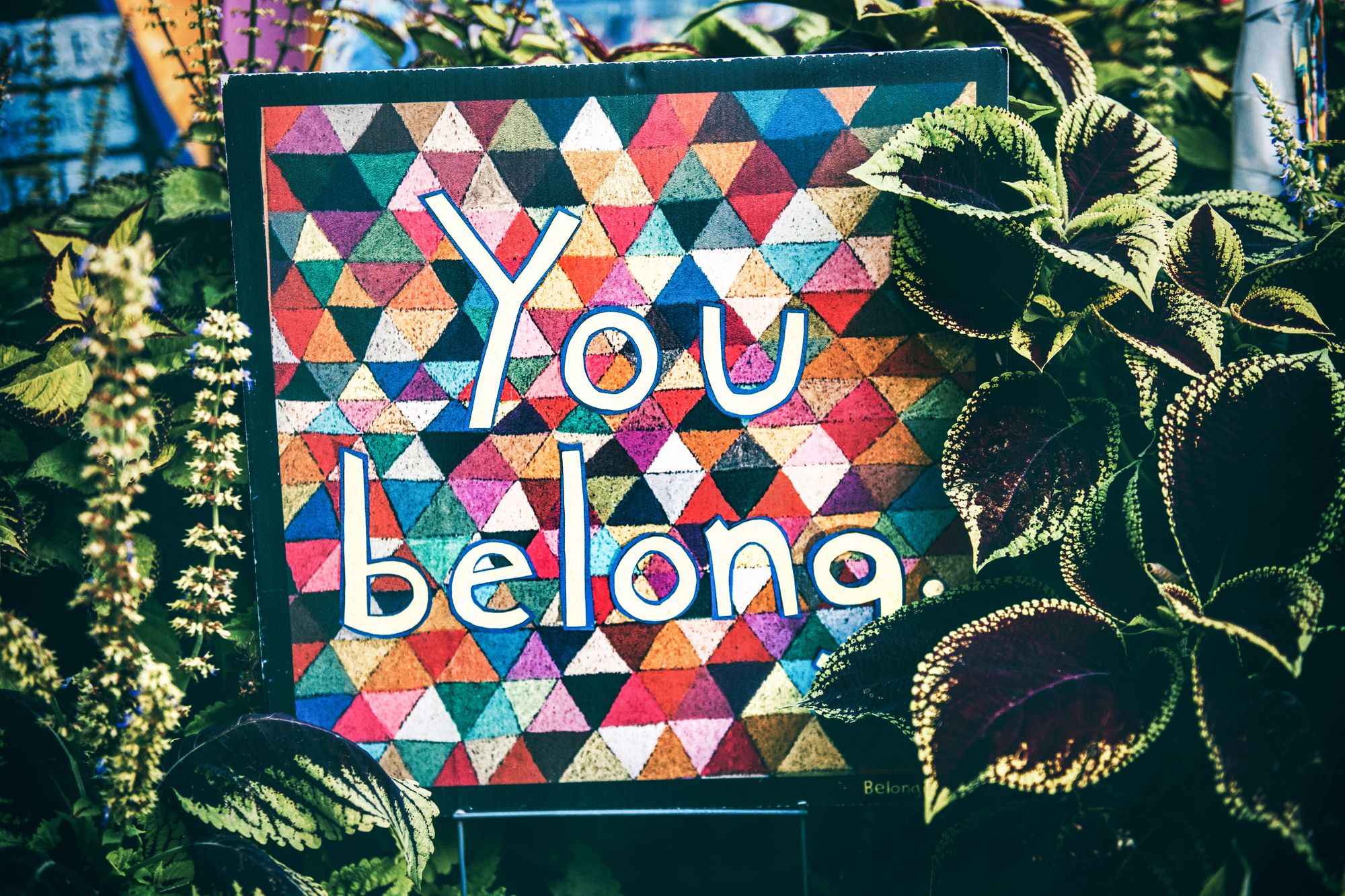
Let's follow Margaret Wheatley's recommendation by starting a conversation. It is in that spirit, I'd like to offer this conversation starter:
Tell me about a time you felt included.
Feel free to share your response by opening this post HERE and leaving a comment.
Note: You'll need to sign in to leave comments.
Thanks for reading. If you're interested in building a more inclusive community and world, I'm sure you know others who are too. Please share this newsletter with a colleague or friend.
Each one of us can make a difference. Together we make change. -Barbara Mikulski


